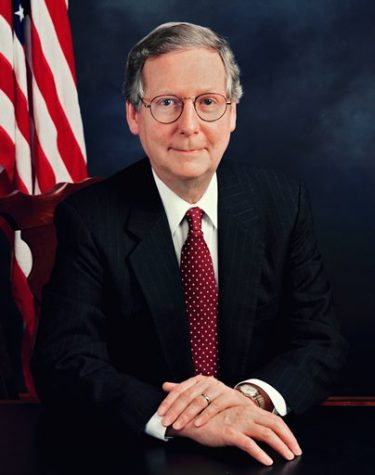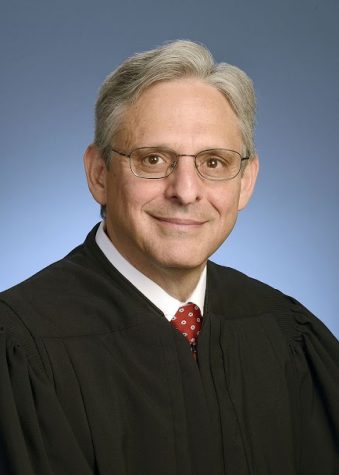On March 16, 2016, President Barack Obama nominated Merrick Garland to serve on the Supreme Court of the United States, to fill the seat left vacant by the recent demise of Justice Antonin Scalia. Following Scalia’s unexpected passing, however, Congressional Republicans almost immediately declared their refusal to evaluate any nominations made by the incumbent commander in chief. This is because it is an election year, and as Senate Majority Leader Mitch McConnell (R-KY) penned in an article for USA Today, “the American people deserve a voice in such a momentous decision.”
Garland, while a relative unknown in the eyes of the general public, is of apparent positive repute within judicial circles. Garland’s experience in law began in the 1970’s, when he graduated from Harvard College, and soon after Harvard School of Law, both with honors. He currently serves as Chief Justice on the U.S. Court of Appeals for the District of Columbia, promoted in 2013 after sixteen years’ service on the same, according to USA Today. He was originally nominated to the role of U.S. Circuit Judge in 1997 by then President Ronald Reagan, a Republican, according to the U.S. Court of Appeals.

As many look to Garland’s judicial records to evaluate his stance on controversial issues, there are a few that stand out – such as combatting terrorism, and the influence of money in politics – and others that are noticeably less prominent – such as abortion, affirmative action, LGBTQ rights, and the death penalty. As one New York Times piece aptly noted, this is likely to do with the district Garland serves; the District of Columbia seems “tilted” towards cases of administrative law more than the “hot-topics” of American political discourse. In examination of Garland’s record, he gave mixed responses on rulings related to Guantanamo Bay, although generally adhering to the precedent of previous SCOTUS rulings, and upheld “Citizens United” to what he considered a reasonable extent. These opinions display the moderate tendencies that have both encouraged and infuriated the liberal political base throughout his judicial tenure. However, in light of a SCOTUS nomination, these must be examined not only from an abstract standpoint but also from the perspective understanding the current ideological makeup of our nation’s highest court.
There are several theories as to why Obama opted to nominate Garland from among a pool of several prospective candidates. The speculation that appears most grounded in fact is that Garland’s more moderate approach to liberal politics could swing the favor of the Senate in his direction. Former Justice Antonin Scalia served as the fifth member of a five judge conservative majority on the court, and it is clear Congressional Republicans, or at least their party leaders, desire to prevent the development of an overtly liberal imbalance. Therefore, postponing consideration of any nominee until after the November general election allows for the possibility of an incoming Republican or otherwise conservative President. This in turn would increase the likelihood of another, more conservative nominee being selected, restoring the balance in place during Scalia’s tenure.
In an effort to sway members of the Senate Garland has been meeting with various Republicans. At the time of McConnell’s initial proclamation of total opposition, there were few willing to even consider the possibility of meeting with the judge, NBC reported. However, sixteen Senators – “over 25 percent of the GOP caucus” – have now agreed to have a conversation with Garland. This does not mean a direct outpouring of support; several have stated that the meetings are purely out of courtesy and others have changed their minds multiple times, at first open to conversation but now further opposing the controversial candidate.

Moving from the Senate’s general position to those of current Presidential hopefuls, reactions to Obama’s choice have been a mixed bag. Donald Trump, predictably, sided emphatically with the Republican party; he commented that he was “pretty much in line,” according to CNN. Ted Cruz, another prominent GOP candidate, cast the issue as a problem a Trump election victory would create, but seemed to side with the Senate as well. John Kasich, currently in third place in the hunt for the Republican nomination, was more ambiguous – “If I think I’m gonna blow something up in the seventh year, I’m not gonna do it.” – in a statement reported by Slate. On the other side of the fence, Democratic candidates Hillary Clinton and Bernie Sanders had choice words for the Republican-majority Senate. The former sharply critiqued the opposition for not performing “the Constitutional duty they swore to undertake,” while the latter called for immediate progression in the nomination process, pointing out that Garland could still be rejected, just after a fair hearing. Both noted the judge’s long history of moderate decisions and bipartisan appeal.
This unprecedented conflict involving all three branches of the federal government has added yet another controversial topic to American political conversation, and should be heavily evaluated as this election year progresses. It is true that California is represented by a solely Democratic delegation to the Senate, so there is less residents can do to directly impact the Republican stance for or against Garland’s nomination proceedings. However, this issue’s magnitude will surely impact other parts of American politics, something to take under consideration as we move closer to the June primaries and November general election.





